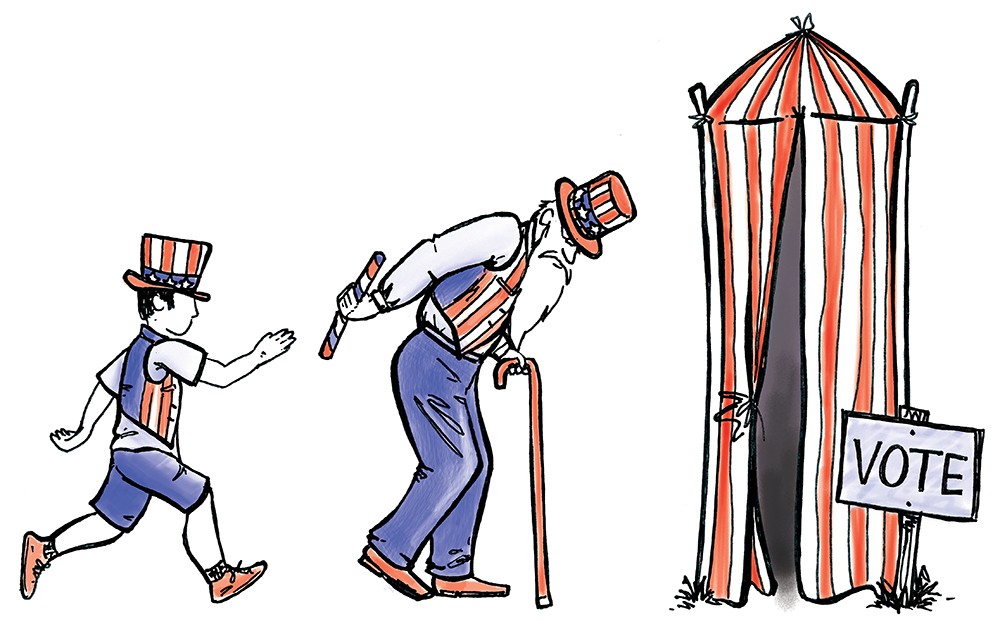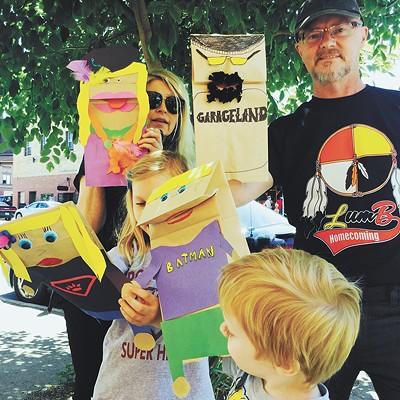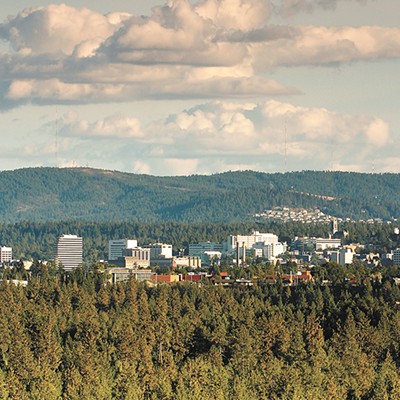The presidential race is a game of demographics, and the dynamics of each group play a part in the holistic profile of the country. In this whirlwind of an election, we see it clearly, with Hillary Clinton annihilating Donald Trump among all minority groups, and Trump winning with white male voters. There's a divide between age groups, too, and as a first-time voter, I'm right in the middle of that.
So as I approach my 18th birthday on Nov. 7 — the day before the general election — I find myself engaged in politics and heated debates among my friends and family. This meant it was time for me to look at the facts and decide what issues I really care about and will affect me — and the nation — for years to come. We're obviously in the middle of a unique election, where many people are voting against a candidate rather than for one. Still, it's important for me to look at what mattered most in my own mind.
I go to Ferris High School, and three of our AP history classes recently teamed up for a discussion that covered some of the issues being decided in this election. Many of my fellow students can vote in this election, and everyone has an opinion. It was beneficial to see how we think as individuals and together.
I will preface this by saying it was a small sample size, with 33 students taking part in the discussion. We started with an anonymous, online poll that had us choose the three most important issues that we would be thinking about this election. No. 1, with more than 70 percent of the students including it in their top three, was social issues, including gun violence, race and criminal justice — issues that have been a huge emphasis for the presidential campaign and in local elections across the country. We've seen so many tragic killings of people in America that this issue is at a boiling point. This appears to be the make-or-break question of 2016.
Coming in second in our classroom poll was the environment and climate chage, with the economy close behind. The least important issues in our poll were immigration, health care and the size and role of government.
One of the biggest questions I had was how my peers think that media affects the views of either candidate. There are so many avenues that we consume information from, particularly with the rise of social media. For example, Trump spouts craziness in his stream-of-consciousness tweets, but it's been an effective way of reaching his voters.
We found that it can be hard to distinguish what is truth and what isn't in election cycles, and that extends to local elections and initiatives. In our class discussion, we looked at the statewide initiatives on our ballot and took a class vote to see which ones the class favors. Initiative 732 deals with climate change and seemed like a no-brainer to everyone voting, with more than 75 percent of the class voting yes. But the deeper down you get, it turns out that the initiative isn't written very well and allows loopholes that could hurt us down the line.
There are so many little things to be aware of when voting, and it surprised us that an initiative that is so flawed could make it this far.
As young people, we're in an interesting spot. With about a fifth of eligible voters falling into the 18-to-29 age group, we could turn the tide of an election just by showing up. But we don't, as research shows we have poor voter turnout.
In my AP government class we learned about England, and a big focus was around the recent referendum that saw the UK vote to leave the European Union — dubbed "Brexit." It was a shock to the world, and woke everyone up to the dynamics of young voter turnout. Only about 36 percent of eligible young voters turned out, which meant that the older people decided that election. The reason that is so significant is that the young voters may be feeling the effects of this decision for a long time, and they didn't really take the time to get involved.
That's exactly the situation America is in right now. If young people get complacent and don't vote, the outcome could change their lives. And that's not just for the presidential race; local elections are woefully overshadowed by the presidential race, but those issues can make a big difference. Even if a race looks to be out of reach for your favorite candidate, voting is crucial. ♦





















